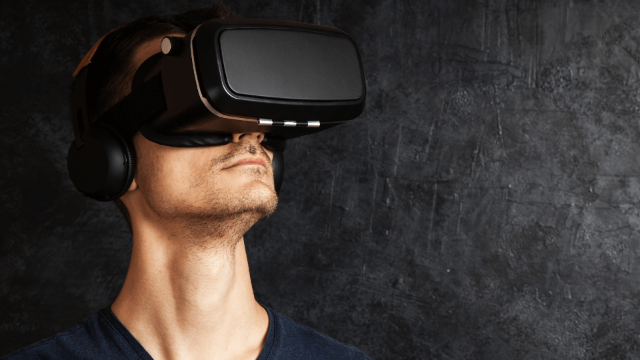
May 2, 2024
The virtual reality game development space has expanded and flourished, with major companies like DOF Robotics leading the way in creating unique experiences to take players away to other worlds. While the creation of VR/AR games pushes the boundaries of what technology can offer, it’s important to consider the psychological effects of spending extended time in that reality. The article examines the consequences of continued immersion in VR environments, focusing on two aspects: the likelihood of VR affecting cognitive and perceptual processes and the possibility of it influencing an individual’s social and emotional aspects.
Cognitive and Perceptual Impacts of Long-Term VR Use
Cognitive psychology proved that the human brain naturally adjusts to new surroundings and activities. This concept, which is popularly known as neuroplasticity, also comes into play when dealing with the lasting repercussions of VR. Using VR for extended periods can cause changes in how people see the world or how they respond to the real world. An example of such a scenario was revealed through a study whereby individuals who utilized VR frequently demonstrated different spatial awareness or visual processing when reintroduced to the physical environment. The repercussions of such changes are severe, and performance on normal tasks becomes impaired, which could lead to specific dangers such as driving.
Moreover, the exclusive level of immersion achieved with VR games produced by a particular VR game development company can result in the so-called Proteus Effect, after the Greek god of the sea and metamorphosis. According to this concept, a person might adopt an overt transformation of their conduct or position on the ground of their virtual avatars that might be reflective in their actual in real life. Consequently, the differences between the digital and actual ego can become indefinable to influence how one’s identity experiences and interacts with others.
Social and Emotional Considerations
Also, VR is not merely a solitary action, Many multiplayer games created by augmented reality game development are a new kind of battlefield where users can meet each other. Nevertheless, continuous engagement produces issues about the ability to meet people, largely with young participants who do not have full formalization. Virtual reality takes away facet-of-face gestures and non-verbal indicators, ignoring the social experience and leaving the user stranded whenever he is not plugged into the environment.
In terms of emotions, the escape also has a flip side. On one hand, in virtual realities, a person can escape from reality, but on the other, while being in a state of uncontrollable environment, a person experiences many not insignificant experiences that can distort or dull the view of reality in general. For example, reactions to various stimuli can exacerbate disinterest or, conversely, the awareness of something. The detail and beauty of graphic design using VR game development cause real life to seem pale. Thus, it is impossible to say that such subsections are unambiguously good or bad.
Addressing the Psychological Implications
Various measures can be implemented to address the potential psychological consequences described. For example, companies such as DOF Robotics, which is at the forefront of virtual reality game development, can take a leading role in promoting responsible use of their products. They can integrate prompts in games that remind users to take a short break every hour or possibly even build games around physical presence in the real world to increase social interactions.
It is also necessary for the industry to invest in prolonged research and development of platforms for understandto the consequences and best practices.
Moreover, educating consumers about the potential consequences of using the technology excessively is necessary. They must find the right balance between virtual and real experiences.
To sum up, developing VR and augmented reality games is increasingly the solution to the growing issue of understanding its psychological repercussions in the long run. Companies like DOF Robotics not only have the power to develop exciting VR products but also the obligation to their customers' cognitive, social, and emotional conditions. With educated interventions and mindful strategies, the evolution of such technologies may continue to attract and involve individuals without jeopardizing their mental stability.
References:
Is Virtual Reality Bad for Our Health? Studies Point to Physical and Mental Impacts of VR Usage
https://communities.springernature.com/posts/is-virtual-reality-bad-for-our-health-studies-point-to-physical-and-mental-impacts-of-vr-usage